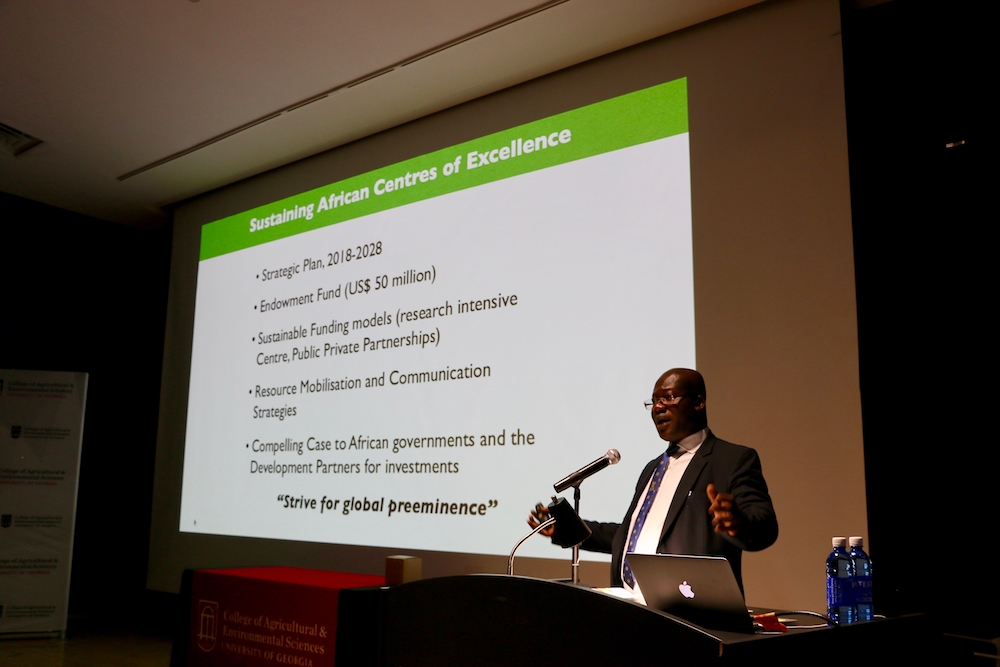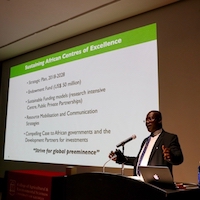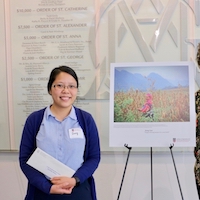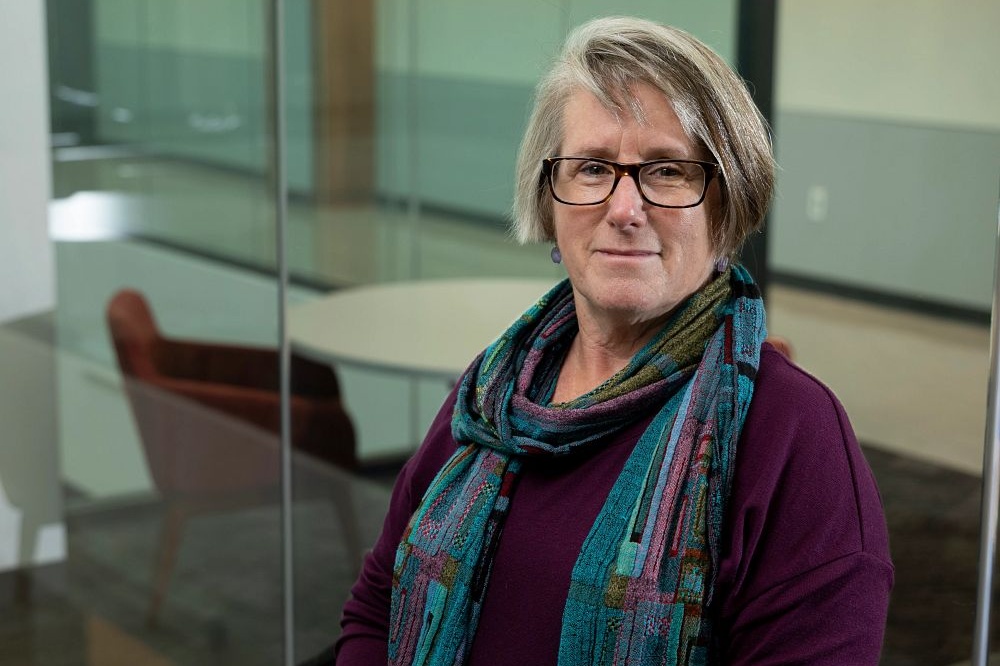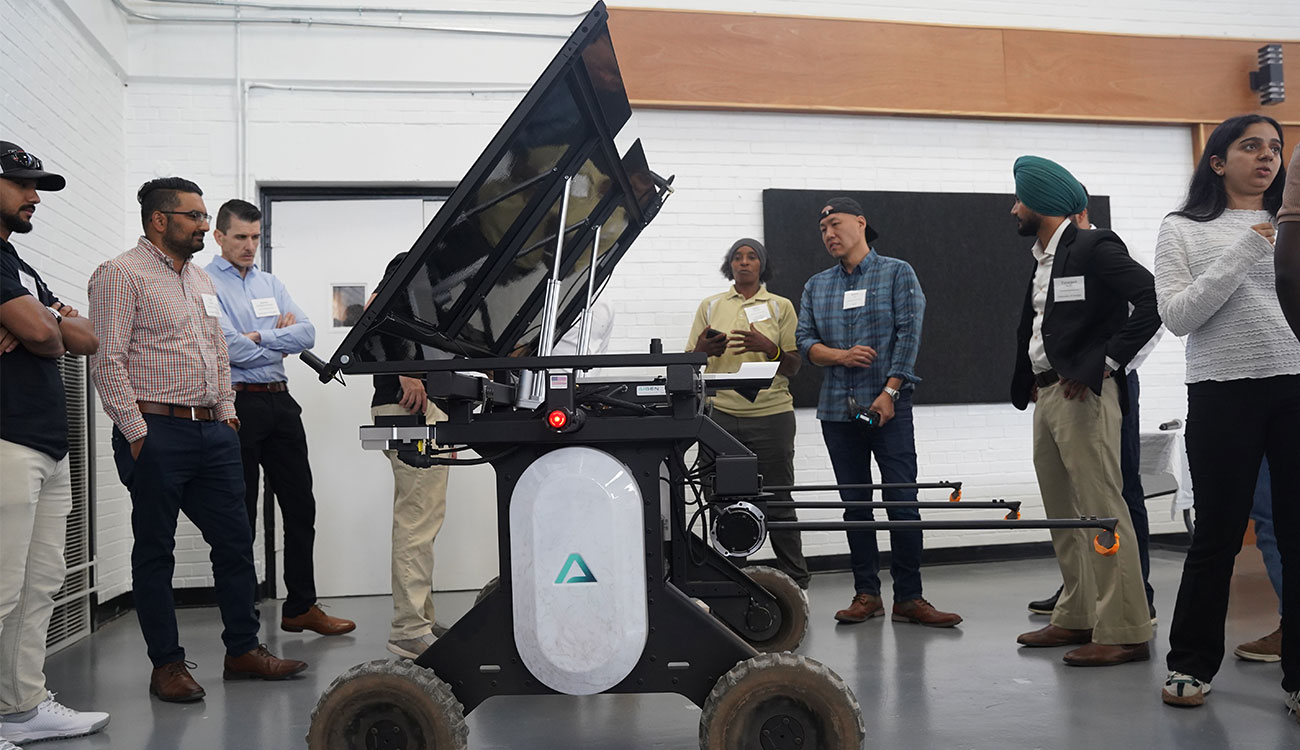Since its inception in 2007, breeders at the West Africa Centre for Crop Improvement (WACCI) in Ghana have produced 23 new varieties of corn, seven new varieties of peanuts, 11 new varieties of rice and seven new varieties of sweet potato.
But the center’s most meaningful contribution to the future of African agriculture and food security are the 66 new doctorates in plant breeding the institution has trained in that time, said Eric Danquah, a plant breeder who founded the center at the University of Ghana.
“(This collection of new varieties) is the outcome of training Africans in Africa to work with African crops for Africa,” Danquah, told a crowd gathered Wednesday at the University of Georgia College of Agricultural and Environmental Sciences’ annual International Agriculture Day celebration.
Danquah attended graduate school in plant breeding at Cambridge University in the United Kingdom before returning to Ghana to teach and conduct research. He was continuously saddened, he said, by the fact that the brightest students that he taught at the University of Ghana would leave for graduate school and not return home to work.
Losing great scientists to universities in America or Europe often meant that crops important to African farmers were not given the same attention in plant breeding programs. Scientists working in Africa are more aware of the trials faced by farmers on the continent and what kinds of seeds would do well in the African market.
Danquah knew “a green revolution for Africa” wouldn’t be possible without researchers working in Africa with easy access to African crops and African farms.
“In a number of places, you just don’t find the needed critical mass of scientists,” he said.
Without the scientific community as a bedrock, private seed companies don’t consider large investments for commercialization infrastructure, and funding agencies are less likely to award research grants, Danquah said, adding that the scientific community being created through WACCI is one of the most important catalysts for agricultural development in Africa.
“What is important about our program is that they’ve all gone back to their home institutions,” Danquah said. “We are building capacity in Africa for Africa.”
He encouraged students and researchers at UGA to visit the University of Ghana to study or collaborate. For more information about WACCI, visit wacci.ug.edu.gh.
In addition to Danquah’s talk, students and faculty at the celebration heard from 2019 CAES graduate Sarah Spradlin, who will receive degrees in agriscience and environmental systems and international affairs and the CAES Certificate in International Agriculture. She spoke about her time interning on the farm that serves UGA’s campus in Costa Rica.
Those gathered also recognized this year’s winners of the CAES Agriculture Abroad Photo Contest.
Dung Tran, a doctoral student in the CAES Institute of Plant Breeding, Genetics and Genomics won first place with her photo, “Happy H’Mong Farmer in the Corn Field.” Tran, who worked in plant conservation in Vietnam, took the photo on a seed collecting trip.
Each family in this region of the country grows their own heirloom corn variety, Tran said. Tran met the farmer in the photo when she took Tran into her family’s field to collect seeds from her family’s variety of sticky corn.
Other students recognized in the photo contest were Sujata Bogati, master’s degree student in the Department of Crop and Soil Sciences, with her second-place photo, “Agriculture in the Mountain Regions,” and Lauren Rutledge, an undergraduate student in the Department of Animal and Dairy Science, with her third-place photo, “Cacao? More like CaWOW!”
The celebration was also a time to honor scholarship award winners and 2019 Certificate of International Agriculture graduates.
Recipients of the 2019 Certificate of International Agriculture included:
- Alexandra Bull, bachelor’s degree in environmental economics and management, minors in environmental law and resource economics, and certificates in sustainability and international agriculture
- Grant Freeman, bachelor’s degree in biological sciences and minor in horticulture
- Abigail Pierce, bachelor’s degree in agricultural communication and certificates in local food systems and international agriculture
- Sarah Spradlin, bachelor’s degrees in international affairs and agriscience and environmental systems
- Ashley Stone, master’s degree in natural resources
- Mallory Warren, bachelor’s degree in environmental economics and management, minor in anthropology, and certificates in organic agriculture, sustainability and international agriculture
Recipients of travel scholarships included:
- Virginia Childs, Kanemasu Global Engagement Award, bachelor’s degree student in food science
- Thomas Woldu Assefa, Graduate International Travel Award, doctoral candidate in agricultural and applied economics
- Matthew Aaron Bruce, Graduate International Travel Award, master’s degree student in crop and soil sciences
- Rachel Hampton, Graduate International Travel Award, master’s degree student in animal and dairy science
- Amelia Lovelace, Graduate International Travel Award, doctoral candidate in plant pathology
- Connie Mou, Graduate International Travel Award, doctoral candidate in poultry science
- Pietro Mendonca de Santis Sica; Global Food Security International Travel Scholarship, master’s degree student in crop and soil sciences
- Maddison Holder, Veloso Wallick Graduate Scholarship, master’s degree student in agricultural and environmental education
- Sadie Lackey, Wen Willams International Travel Scholarship, bachelor’s degree student in agricultural communication
- Jacqueline Kessler, Broder-Ackerman Global Citizen Award, bachelor’s degree student in environmental and management
For more information about CAES international collaboration and opportunities for CAES students to study and work abroad, visit global.uga.edu.
For more photos from the event visit www.flickr.com.

